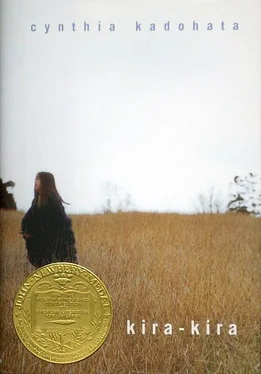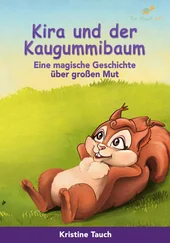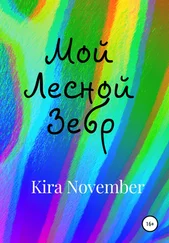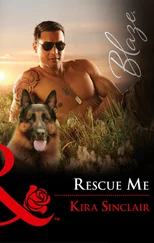Cynthia Kadohata - Kira Kira
Здесь есть возможность читать онлайн «Cynthia Kadohata - Kira Kira» весь текст электронной книги совершенно бесплатно (целиком полную версию без сокращений). В некоторых случаях можно слушать аудио, скачать через торрент в формате fb2 и присутствует краткое содержание. Год выпуска: 2006, ISBN: 2006, Издательство: Atheneum Books for Young Readers, Жанр: ya, Современная проза, Историческая проза, на английском языке. Описание произведения, (предисловие) а так же отзывы посетителей доступны на портале библиотеки ЛибКат.
- Название:Kira Kira
- Автор:
- Издательство:Atheneum Books for Young Readers
- Жанр:
- Год:2006
- ISBN:978-0689856402
- Рейтинг книги:3 / 5. Голосов: 1
-
Избранное:Добавить в избранное
- Отзывы:
-
Ваша оценка:
- 60
- 1
- 2
- 3
- 4
- 5
Kira Kira: краткое содержание, описание и аннотация
Предлагаем к чтению аннотацию, описание, краткое содержание или предисловие (зависит от того, что написал сам автор книги «Kira Kira»). Если вы не нашли необходимую информацию о книге — напишите в комментариях, мы постараемся отыскать её.
kira-kira
kira-kira
kira-kira
Kira Kira — читать онлайн бесплатно полную книгу (весь текст) целиком
Ниже представлен текст книги, разбитый по страницам. Система сохранения места последней прочитанной страницы, позволяет с удобством читать онлайн бесплатно книгу «Kira Kira», без необходимости каждый раз заново искать на чём Вы остановились. Поставьте закладку, и сможете в любой момент перейти на страницу, на которой закончили чтение.
Интервал:
Закладка:
Kira-Kira
by Cynthia Kadohata
For Kim
For Stan
And for Sara
Acknowledgments
The author would like to thank her editor and friend, Caitlyn Dlouhy; George Miyamoto; Natalie and Miles Bergner and their father, Dan; Kim, Steve, and Caroline Maire; Keith Holeman; Jeannette Miyamoto; and Sonoko Sakai.
chapter 1

My SISTER, LYNN taught me my first word: kira-kira. I pronounced it ka-a-ahhh, but she knew what I meant. Kira-kira means "glittering" in Japanese. Lynn told me that when I was a baby, she used to take me onto our empty road at night, where we would lie on our backs and look at the stars while she said over and over, "Katie, say 'kira-kira, kira-kira.'" I loved that word! When I grew older, I used kira-kira to describe everything I liked: the beautiful blue sky, puppies, kittens, butterflies, colored Kleenex.
My mother said we were misusing the word; you could not call a Kleenex kira-kira. She was dismayed over how un-Japanese we were and vowed to send us to Japan one day. I didn't care where she sent me, so long as Lynn came along.
I was born in Iowa in 1951. I know a lot about when I was a little girl, because my sister used to keep a diary. Today I keep her diary in a drawer next to my bed.
I like to see how her memories were the same as mine, but also different. For instance, one of my earliest memories is of the day Lynn saved my life. I was almost five, and she was almost nine. We were playing on the empty road near our house. Fields of tall corn stretched into the distance wherever you looked. A dirty gray dog ran out of the field near us, and then he ran back in. Lynn loved animals. Her long black hair disappeared into the corn as she chased the dog. The summer sky was clear and blue. I felt a brief fear as Lynn disappeared into the cornstalks. When she wasn't in school, she stayed with me constantly. Both our parents worked. Officially, I stayed all day with a lady from down the road, but unofficially, Lynn was the one who took care of me.
After Lynn ran into the field, I couldn't see anything but corn.
"Lynnie!" I shouted. We weren't that far from our house, but I felt scared. I burst into tears.
Somehow or other, Lynn got behind me and said, "Boo!" and I cried some more. She just laughed and hugged me and said, "You're the best little sister in the world!" I liked it when she said that, so I stopped crying.
The dog ran off. We lay on our backs in the middle of the road and stared at the blue sky. Some days nobody at all drove down our little road. We could have lain on our backs all day and never got hit.
Lynn said, "The blue of the sky is one of the most special colors in the world, because the color is deep but see-through both at the same time. What did I just say?"
"The sky is special."
"The ocean is like that too, and people's eyes."
She turned her head toward me and waited. I said, "The ocean and people's eyes are special too."
That's how I learned about eyes, sky, and ocean: the three special, deep, colored, see-through things. I turned to Lynnie. Her eyes were deep and black, like mine.
The dog burst from the field suddenly, growling and snarling. Its teeth were long and yellow. We screamed and jumped up. The dog grabbed at my pants. As I pulled away, the dog ripped my pants and his cold teeth touched my skin. "Aaahhhhh!" I screamed.
Lynn pulled at the dog's tail and shouted at me, "Run, Katie, run!" I ran, hearing the dog growling and Lynnie grunting. When I got to the house, I turned around and saw the dog tearing at Lynn's pants as she huddled over into a ball. I ran inside and looked for a weapon. I couldn't think straight. I got a milk bottle out of the fridge and ran toward Lynn and threw the bottle at the dog. The bottle missed the dog and broke on the street. The dog rushed to lap up the milk.
Lynn and I ran toward the house, nh°ng she stopped on the porch. I pulled at her. "Come on!"
She looked worried. "He's going to cut his tongue on the glass."
"Who cares?"
But she got the water hose and chased the dog away with the water, so it wouldn't hurt its tongue. That's the way Lynn was. Even if you tried to kill her and bite off her leg, she still forgave you.
This is what Lynn said in her diary from that day:

[1] The corn was so pretty. When it was all around me, I felt like I wanted to stay there forever. Then I heard Katie crying, and I ran out as fast as I could. I was so scared. I thought something had happened to her! Later, when the dog attacked me, Katie saved my life.
I didn't really see things that way. If she hadn't saved my life first, I wouldn't have been able to save her life. So, really, she's the one who saved a life.
Lynn was the bravest girl in the world. She was also a genius. I knew this because one day I asked her, "Are you a genius?" And she said, "Yes." I believed her because the day my father taught her how to play chess, she won her first game. She said she would teach me how to play if I wanted. She always said she would teach me everything in the world I needed to know. She said we would be rich someday and buy our parents seven houses. But first they would buy a house for all of us. That wonderful day was not far off. I found this out one afternoon when Lynn pulled me into the kitchen, her eyes shining. "I have to show you something," she said.
She reached under the refrigerator and pulled out a tray. A worn envelope sat inside. She opened the envelope up and showed me what was inside: cash.
"Is that real?" I said.
"Uh-huh. It belongs to Mom and Dad. It's for our house we're going to buy."
We lived in a little rented house in Iowa. I liked our little rented house, but Lynn always told me I would love our very own house. Then we could get a dog, a cat, and a parakeet.
Lynn looked at me expectantly. I said, "Doesn't money belong in a bank?"
"They don't trust the bank. Do you want to count it?"
She handed me the envelope, and I took the money in my hands. It felt damp and cool. "One, two, three ..." I counted to eleven. Eleven hundred-dollar bills. I wasn't sure what to think. I found a dollar once in a parking lot. I bought a lot of stuff with that. With eleven hundred dollars, it seemed you could buy anything. "I hope our house is painted sky blue," I said.
"It will be." She put the money back. "They think it's hidden, but I saw Mom take it out."
Our parents owned a small Oriental foods grocery store. Unfortunately, there were hardly any Oriental people in Iowa, and the store went out of business shortly after Lynn and I first counted the money under the refrigerator. My father's brother, my uncle Katsuhisa, worked in a poultry hatchery in Georgia. He said he could get my father a job at the hatchery. And, he said, he could get my mother a job working in a poultry processing factory. A few weeks after the store went out of business, my father decided to take us down to Georgia to join the poultry industry.
So we owed Uncle Katsuhisa a big favor for helping us. Katsu means "triumph" in Japanese. For some reason I always thought "triumph" and "trumpet" were the same thing, and I thought of my uncle as a trumpet.
Lynn said Uncle Katsuhisa was an odd fish. He was as loud as my father was quiet. Even when he wasn't talking, he made a lot of noise, clearing his throat and sniffing and tapping his fingers. Sometimes, for no reason that I could see, he would suddenly stand up and clap his hands together really loudly. After he got everyone's attention, he would just sit down again. He even made noise when he was thinking. When he was deep in thought, he had a way of turning his ears inside out so they looked kind of deformed. The ears would make a popping sound when they came undone. Lynn said you could hear him thinking: Pop! Pop!
Читать дальшеИнтервал:
Закладка:
Похожие книги на «Kira Kira»
Представляем Вашему вниманию похожие книги на «Kira Kira» списком для выбора. Мы отобрали схожую по названию и смыслу литературу в надежде предоставить читателям больше вариантов отыскать новые, интересные, ещё непрочитанные произведения.
Обсуждение, отзывы о книге «Kira Kira» и просто собственные мнения читателей. Оставьте ваши комментарии, напишите, что Вы думаете о произведении, его смысле или главных героях. Укажите что конкретно понравилось, а что нет, и почему Вы так считаете.












